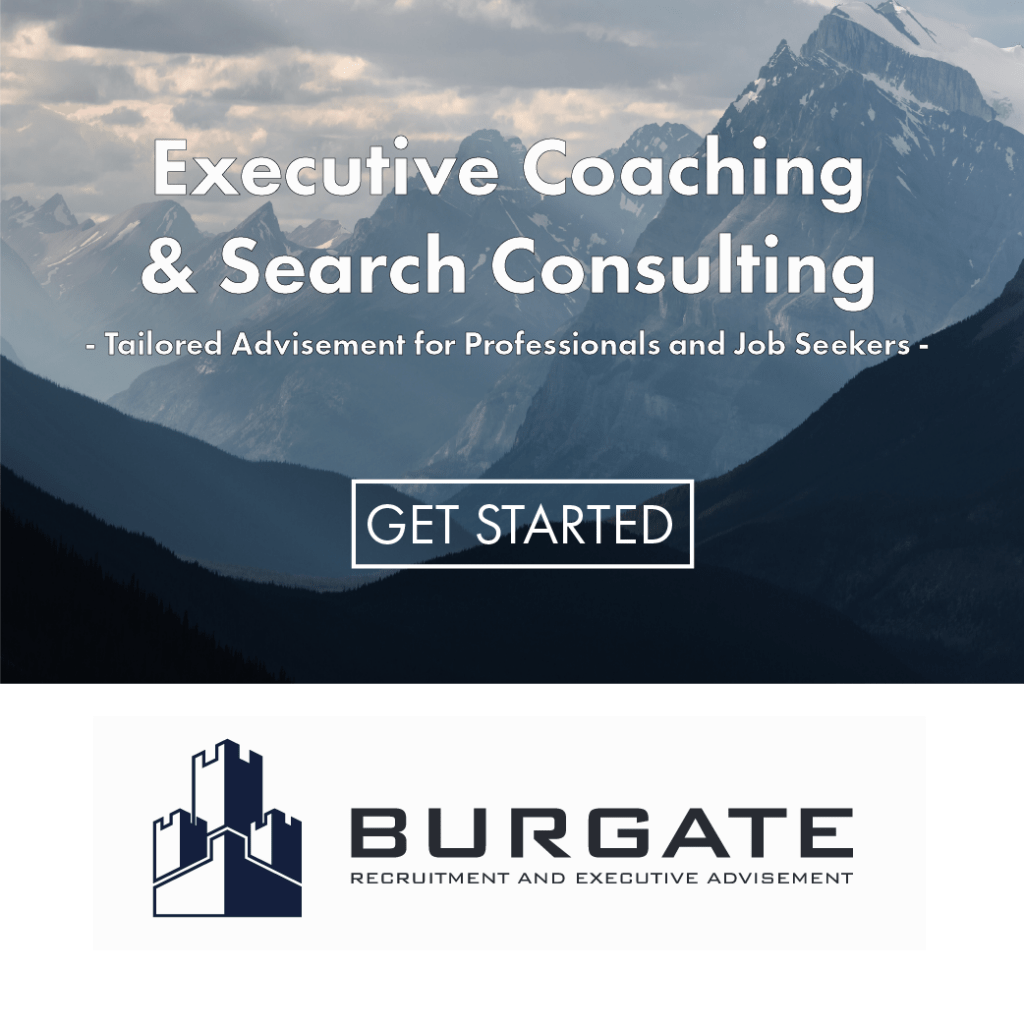When we consider companies and their specific positioning in the marketplace, we often think of Apple, Amazon, Netflix, Tesla, Coca-Cola, Microsoft, Nike, and Disney as examples of organizations who have purposely worked and continue to shape both the internal and external impression of their corporate brands.
Some folks may love one brand and detest another – but no one can argue that these companies have benefited from a carefully crafted persona that resonates with their targeted consumer segments.
The idea of branding absolutely applies to each of us individually. As professionals seeking to further our chosen career path, it is important to understand how we are perceived and how best to position our capabilities for future opportunity.
Whether you are an executive currently seeking your next opportunity or one looking for mobility within your current organization, one must consider their own personal brand and work to align that brand toward the overall marketplace. Even if you haven’t considered developing your own personal brand, your actual brand already exists and we each will benefit as we come to understand our current positioning and as a result start to shape and own our unique brand.
Your Brand Already Exists
As an executive recruiter and career coach, I am often introduced to individuals and prior to a discussion, I will review their resume and professional network profiles. Often, I will scan the web for any articles, mentions, speaking engagements, videos, association memberships and the like. At times, I will also review their profiles on various social networking sites.
Fair or not, I will quickly surmise a great deal about their background and in doing so, experience their personal brand prior to our 1st conversation.

In short, all of these elements represent us in the marketplace and showcase a persona by which we may be initially defined, regardless of whether we have intentionally chosen this personal branding. It is up to each of us individually to commit the time, energy, and effort to shape our brand.
A good exercise would be to invite a friend, co-worker, or family member who will be brutally honest with us to peruse each of these elements and tell us what they believe this branding is saying about us. How does my expertise come across? From what you read what would you say that I do and what am I good at? Is there a personality that comes across in these mediums? All good questions to ask and understand how you might be currently perceived.
Without this intentional discovery, we are at the mercy of our brand being shaped by other external factors.
Discovering Your Personal Brand
Awareness of who we are, our strengths, weaknesses, capabilities, and expertise are an important first step in aligning our online profiles, personal marketing documents, and other mediums to match the branding that we want to represent.
But what if I do not know the branding that I want to exhibit within the marketplace?

As a reader of my articles in The National CIO Review, you may already be aware of my recommendation for every professional to create a Project or Professional Portfolio. As a recap, a Project Portfolio is a one-page document, that looks nothing like your resume. In building this document, one should write 8 – 10 bulleted narratives, 3 – 4 sentences each, where you speak to specific projects, accomplishments, transformations, or implementation successes across your career.
In writing these narratives one should not mention the specific company for whom you performed this work. And in most cases, it is best not to mention the specific industry, unless of course you want to brand yourself specifically in that industry. For more on the project portfolio process and how it can be used in a job search, visit Rethink the Resume | How to Hack Your Next Job Search.
For one it is a great to have a project portfolio in your marketing collateral, but it can also serve as a means of discovery of the key defining moments and accomplishments that you have achieved during your career progression. And with proper presentation these defining moments can serve to further establish your personal brand.
Let say for example you joined a company at a certain stage of growth and during your leadership the organization grew 5X, or 10X. In this particular narrative, you would describe the elements of your leadership, your performance, that allowed for this growth. How you managed your organization, what steps you took to keep pace, how you had to modify, build your team, how you led during this period, and what results were accomplished against all odds are important considerations.
Clearly, someone who reads this narrative may see your personal branding as a transformational leader who has the ability to scale an organization, during a stage of chaos, and normalize performance as the organization grew.
Perhaps you have a demonstrated track record of continual learning? Let’s for example consider that you are constantly seeking new learning, network strongly with your peers outside your organization to obtain knowledge on emerging trends, that you regularly participate in associations and share your expertise as a thought leader. Well, if that is a part of who you are – it would definitely represent a marketable element of your personal brand.
We could share many examples that would make great narratives in your Project Portfolio. However, the key point here is to begin a method of discovery on what you have accomplished throughout your career and look for common themes. Being able to share these narratives, explaining the commonality of your persona, can begin to shape how others receive your personal brand.
Fill the Gap
Let’s consider that in discovering your personal brand and working through the exercise of determining what may be marketable in your background, you determine that there are elements of branding that you want to have, but you have yet to obtain relevant experience in that area.
Understanding who you are but more so in who you want to be is an important element of personal branding.
I once knew a technology executive that was the CIO for a mid-size organization whose company was located in a smaller market. They had been in their role for quite some time and their branding as a result was quite skewed to that company, industry, and geographical location. In short, they felt somewhat stuck in their current role, and opportunities both internal and external were limited. What was interesting is that this executive had a bit of experience in the emerging security sector and it was something of high interest in their career path.
So what did this forward thinking individual do?
They began to educate themselves further on the topic of information security, applying many of those principles into their current organization. Next this leader began writing articles on the topic, speaking at conferences, and began building their brand as a thought leader in this field.

Fast forward and this leader was able to pivot their career and is now considered more of a CISO than CIO and is seen as an expert and thought leader in the field of information security. Needless to say this individual was able to transition into a security technology leadership role in a much larger organization, in a much larger market.
Regardless of the gap that you want to fill in your personal branding, it can be done.
Showcase Your Personal Brand
Once you have carefully considered and have begun building the elements of an authentic and defensible personal brand, this work in process should continue throughout your career. Ensuring that these brand elements are consistent across social and professional platforms can help to draw interested parties to seek you out as a thought leader in your field.
Your resume and marketing documents should incorporate relevant experience that aligns toward the persona that you represent. Speaking at conferences and writing for trade publications can further develop your expertise in this area and showcase the value that you bring both internally and externally within your current organization.
Final Thoughts
Branding can be difficult and at times seem self-serving. However, it is up to each of us individually to continually build on and reinforce this brand that we have chosen and want to see represented. Whether we are currently employed or actively seeking our next opportunity we must devote the time to continually assess, build, and showcase what we bring to the table as executives and thought leaders. Too often I hear from leaders that are in transition, attempting to find their next role, and there is expressed regret on having not devoted the time to shape the external view of how they might be viewed in the professional marketplace.
The time spent to thoughtfully consider one’s brand is an investment that will pay dividends as we progress through our professional career and chosen endeavor. Without intentional commitment, our brand will be defined for us.
This is the eighth in a series of articles for my upcoming book, “How to Hack Your Next Job Search”. For my readers, I will be sharing insight, observations, and specific coaching on how best to conduct a job search. These strategies are simple, yet diverge greatly from most traditional approaches. It is my goal to share a proven process and cultivate a mindset that will elevate you into the top 5% of job seekers in any particular market or industry.
I. Deciding to Take Action | How to Hack Your Next Job Search
II. Approaching Your Search Like a New Job | How to Hack Your Next Job Search
III. Begin With Realistic Expectations | How to Hack Your Next Job Search
IV. Rethink the Resume | How to Hack Your Next Job Search
V. Uncovering Hidden Job Opportunities | How to Hack Your Next Job Search
VI. Addressing Gaps in Employment | How to Hack Your Next Job Search
VII. Ace the Interview | How to Hack Your Next Job Search
VIII. Defining Your Personal Brand | How to Hack Your Next Job Search





